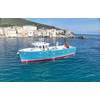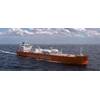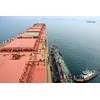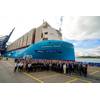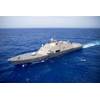Canada Steamship Lines to Test Biodiesel
Montreal-based shipping company Canada Steamship Lines (CSL) said it will test second generation biodiesel on half of its fleet over the course of the 2021 navigation season—a first for the Great Lakes shipping industry.
These tests, which follow the trials of B100 biodiesel fuel on the main engines of two CSL ships last year, come as CSL explores the use of green fuels and technologies to reduce its vessel emissions and overall environmental footprint.
Elsewhere, several shipping companies seeking to curb their emissions have been trialing cleaner-burning biofuels, which have very low sulphur levels and low CO2 emissions. According to CSL, its biodiesel tests are a first for commercial shipping on the Great Lakes.
"Replacing fossil fuel with biodiesel on vessels requires no modification of existing equipment and provides a viable carbon neutral fuel source over its lifecycle," said Louis Martel, President and CEO, The CSL Group. "This is what makes biofuels a very attractive option to reduce our environmental footprint, and we are eager to continue testing them and other solutions that offer the potential to contribute to cleaner air and waterways."
Having aligned with Canada’s nationally determined targets under the Paris Climate Agreement with a goal to reduce greenhouse gas emissions by 35% below 2005 levels by 2030, CSL is building more efficient ships, investing in R&D and innovation, and exploring and testing new technologies, fuels and digital solutions.
The company is currently building a new 26,000 DWT diesel-electric self-unloading ship, purpose-built to service Windsor Salt’s Mines Seleine located in the eco-sensitive marine environment of the Magdalene Islands.
“The pace of transformation and digitalization we are witnessing in shipping today is a game-changer, and we are fully committed to modernizing and investing in the long-term viability, sustainability and success of our company and sector,” Martel said.
“Marine transportation continues to be the most efficient, reliable and eco-responsible choice for shipping large cargos, and investments made today in green solutions will have positive impacts for generations to come.”




